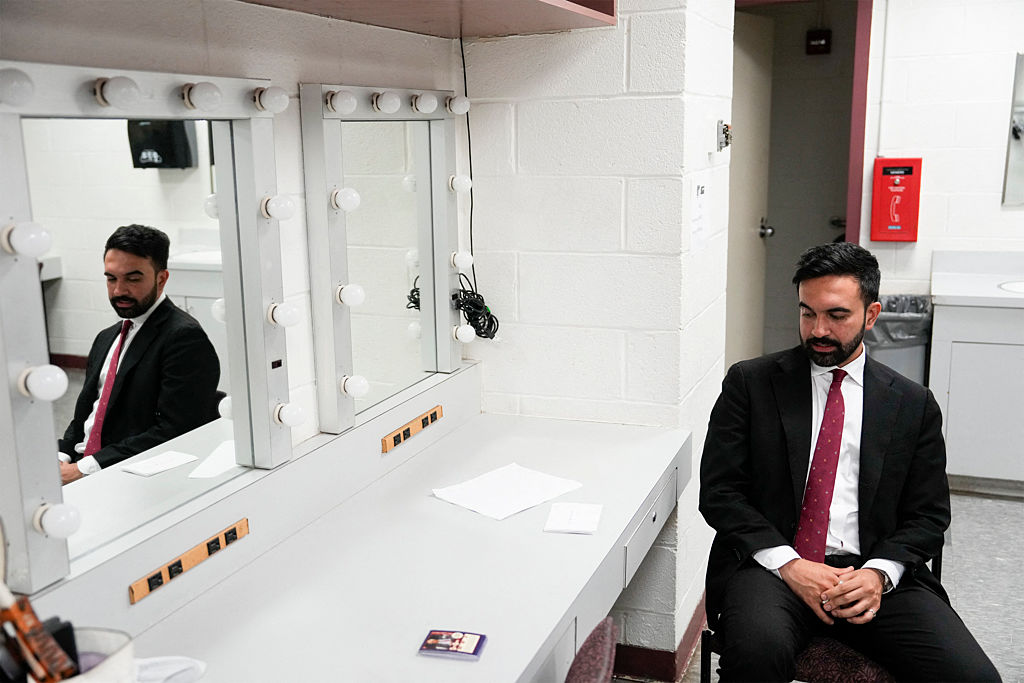Manchin’s energy bargain
Is Joe Manchin about to be betrayed by his party? When the West Virginia senator unexpectedly changed his tune on a large spending bill earlier this summer, he did so as part of a deal. He would back the green subsidies in the Inflation Reduction Act if Democratic leadership backed an overhaul of the energy permitting process.
Given progressives’ hostility to fossil fuels, the politics of this deal were never going to be straightforward. And sure enough, a gang of left-wing Democratic senators is gearing up for a blue-on-blue fight over the legislation. Bernie Sanders used a speech on Thursday to express his “strong opposition to the so-called side deal that the fossil fuel industry is pushing to make it easier for them to pollute the environment and destroy our planet.” A sizable gang of progressives in the House agrees.
For now, Manchin has Democratic leadership on his side. Chuck Schumer plans to affix the permitting legislation to measures that need to be passed to avoid a government shutdown. But some worry that the pressure from the left will cause Manchin to make life easier for Schumer and Pelosi by watering down his yet-to-be-published proposals.
A bruising fight over energy and climate change is the last thing Democrats want ahead of the midterms, especially given the backdrop in both California and Europe, where the cost of energy scarcity is being made abundantly clear.
Things have an ominously seventies feel on the other side of the Atlantic. A cost of living crisis is set to intensify as the winter arrives and policymakers are opting for unwelcome throwbacks like nationalization and price caps. Meanwhile, Democratic lawmakers are delivering a reminder that, for many in their party, Europe is a continent they hope to emulate when it comes to energy and environmental policy.
*** Sign up to receive the DC Diary in your inbox here ***
Eastern promise
Ukraine’s long-promised counter-offensive has, by all accounts, gone about as well as one could expect. According to the Wall Street Journal, the counteroffensive amounts to “one of the biggest setbacks since the start of the war for Russian troops,” with hard-fought gains near Kharkiv, Ukraine’s second largest city, and across the northeast wiped out. The Institute for the Study of War’s most recent summary of the state of the conflict puts it as follows: “Ukrainian forces have penetrated Russian lines to a depth of up to 70 kilometers in some places and captured over 3,000 square kilometers of territory in the past five days since September 6 – more territory than Russian forces have captured in all their operations since April.”
After a deadly stalemate, this is very good news. How did Ukraine do it? As Charles Lipson explains for the site, “with very shrewd tactics, courageous fighters, superior intelligence, and precision weapons donated by the US, Britain, Poland, and other NATO partners.” And, as Lipson points out, things could be about to get worse still for Vladimir Putin. Could panic spread to Russian troops to the south? Could military humiliation prompt a risky escalation by Russia? Could it even cause Putin to lose his grip on power altogether?
Time will tell. But this welcome turning point undoubtedly brings with it dangers as well as opportunities, especially given Kyiv’s determination to secure complete liberation.
Anne Applebaum, a consistent advocate for the West to be further and faster in its support for Ukraine’s fight against Russia, is frank about what Ukraine’s “extraordinary ambitious” definition of victory means: “To put it bluntly: It is hard to imagine how Russia can meet any of these demands — territorial, financial, legal — so long as its current president remains in power.”
In other words, the stakes in Ukraine are higher than ever. That means both exciting possibilities and perilous risks.
Even the Washington Post is worried about soft-on-crime policies
A Washington Post editorial laments the “alarming regularity of violence — predominantly gun violence” in DC. After some throat-clearing about the complicated causes of the rise in violent crime in the city, the paper gets to the heart of the matter, criticizing the DC council for having “enacted measures — such as halting police hiring and abolishing school resource officers — and employed rhetoric that made police feel like they were the enemy, making law enforcement’s job harder and the city less safe.”
The council threatens to make the problem worse, mulling items on the criminal justice reform checklist such as abolishing carjackings as a separate offense (while the city is in the midst of a carjacking spike) and reducing penalties for armed robbery. Of these proposals, the Post warns that “the council cannot, as it has so often done, brush aside the concerns that police and prosecutors express about these changes” and worries that city officials are “creating a culture in which people engage in wrongdoing because they think there are few consequences.”
A growing crime problem and creeping sense of disorder is obvious to Washingtonians. That the city’s increasingly liberal newspaper is sounding the alarm is a sign that patience is wearing thin.
What you should be reading today
Peter Van Buren: Why is a ‘special master’ reviewing Trump’s documents?
Emmet Penney: California goes lights out thanks to green energy
Ben Domenech: The ignorance of the Queen’s ‘anti-colonialist’ critics
Andrew Rice and Olivia Nuzzi, New York: The sordid saga of Hunter Biden’s laptop
Daniel Drezner, Reason: Goodbye, globalization?
Nate Cohn, New York Times: Yes, the polling warning signs are flashing again
Poll watch
President Biden job approval
Approve: 42.6 percent
Disapprove: 54.4 percent
Net approval: -11.8 (RCP Average)
Arizona senate race
Mark Kelly (D): 47 percent
Blake Masters (R): 45 percent (Emerson)

























